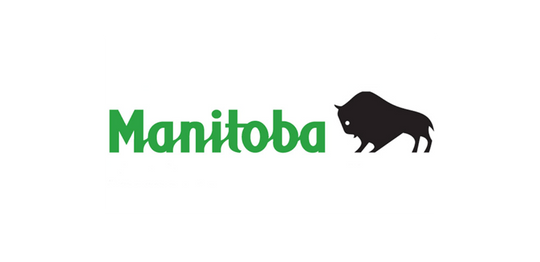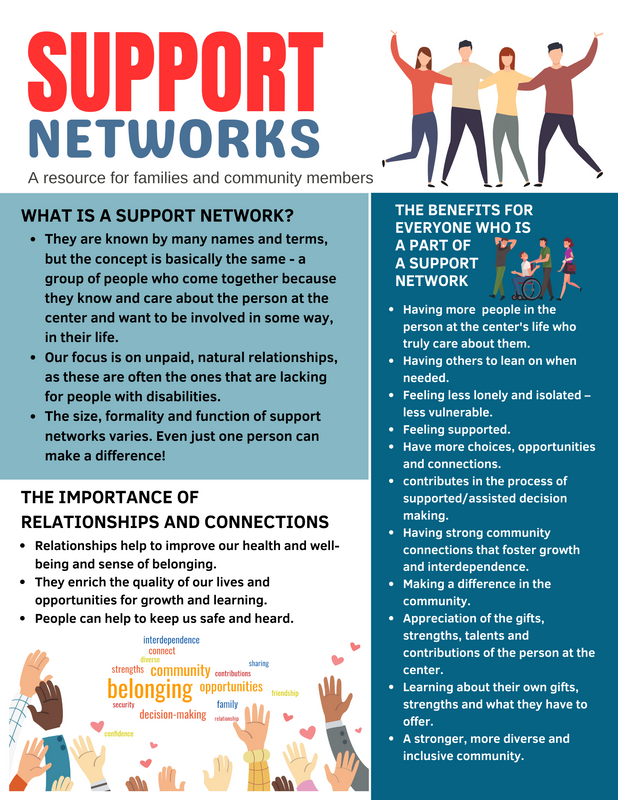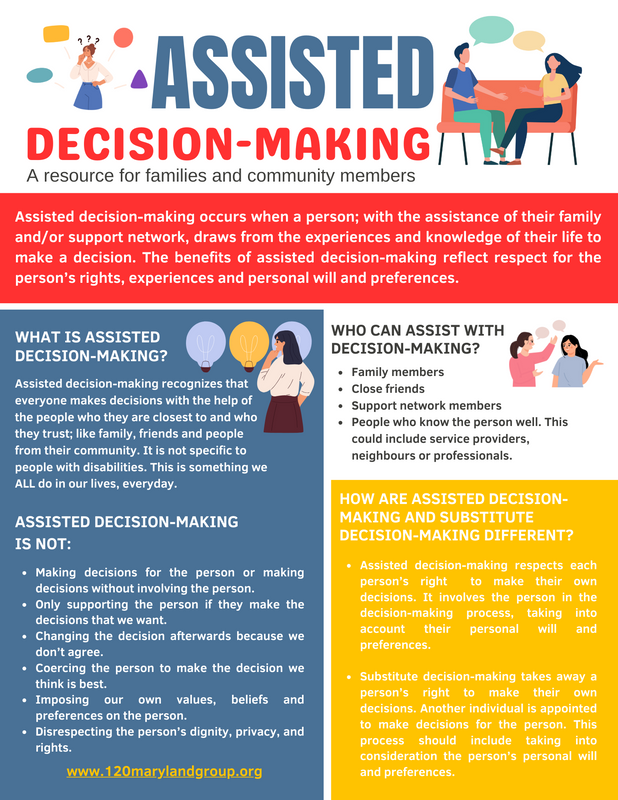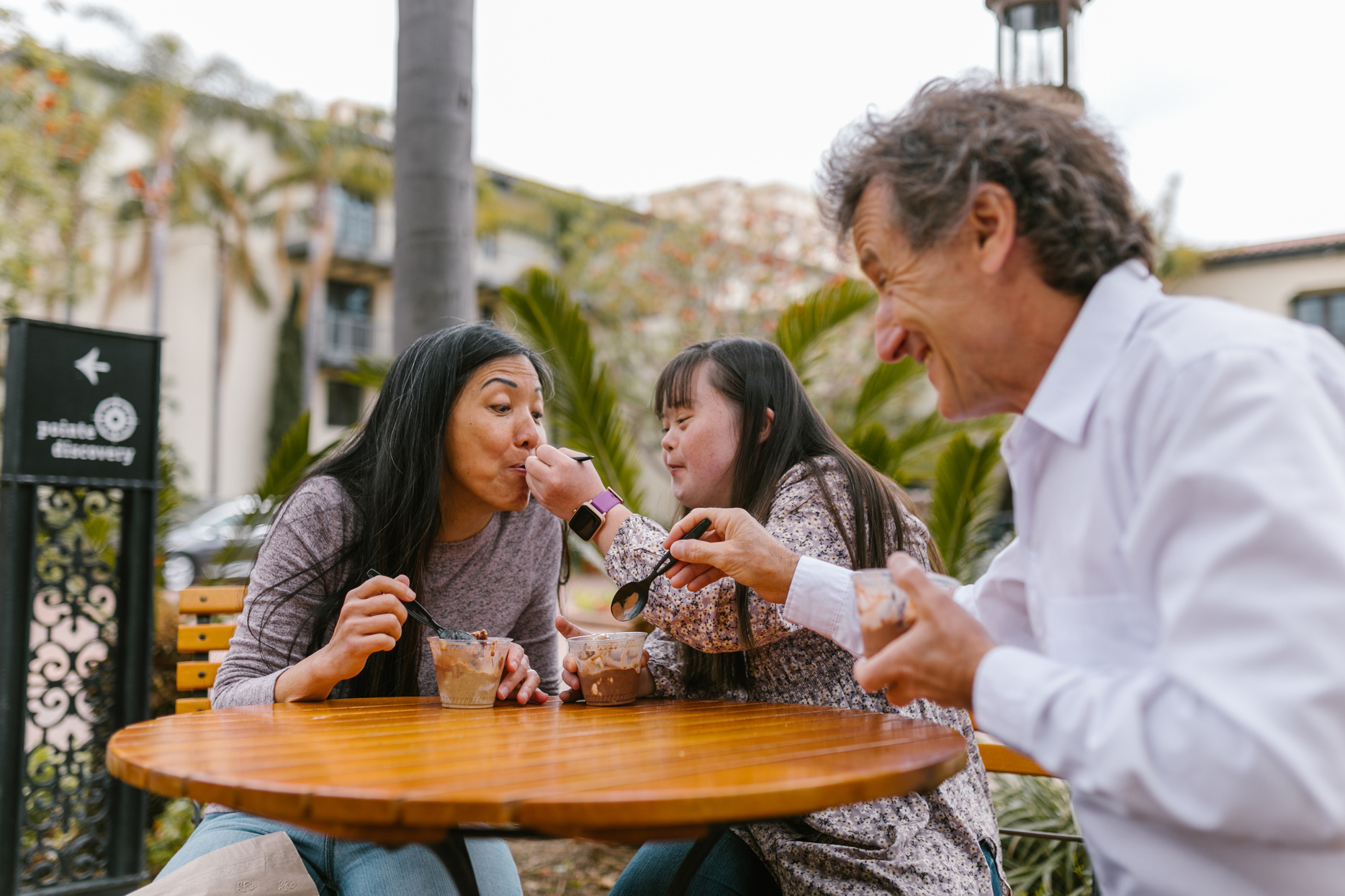
The Community Based Assisted Decision-Making Pilot Project
The Project
The Community Based Assisted Decision-Making (CBADM) Pilot Project is a two year project funded by the Government of Manitoba (Department of Families) and delivered by the 120 Maryland Group. The project objectives include developing peer support networks for families, increasing capacity for the use of support networks, motivating the use of community-based assisted decision-makers and assisted decision-making, and reducing reliance on the Public Guardian and Trustee.
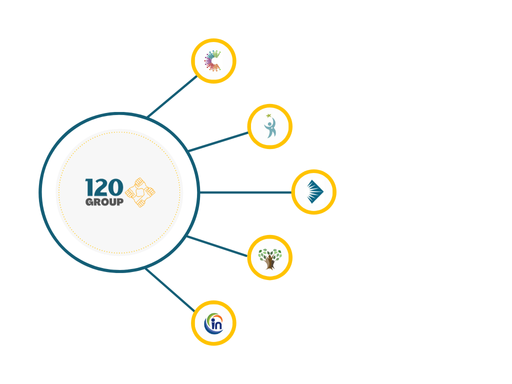
The 120 Maryland Group
The 120 Maryland Group is a collaboration of 5 community-based organizations consisting of:
The Community Based Assisted Decision-Making Pilot Project is funded by the Government of Manitoba, Department of Families.
Community Based Assisted Decision-Making Works
WHEN THE FOLLOWING ARE PRESENT
Peer Support Networks
Peer Support networks are the relationships parents, family members and unpaid caregivers pull into their lives in an intentional way. Peer support networks are developed to give understanding, empathy, guidance and support to those who love and care for an individual with an intellectual disability.
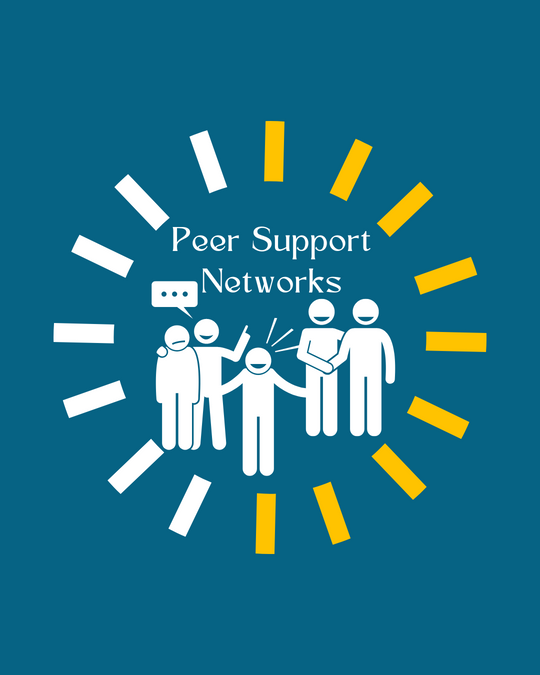
Support Networks
Through developing a support network, individuals with an intellectual disability have the opportunity to build stronger ties with new and existing relationships. Support network members bring unique perspectives; relational diversity, friendship, community connection and networking opportunities, as well as support and guidance in decision-making.
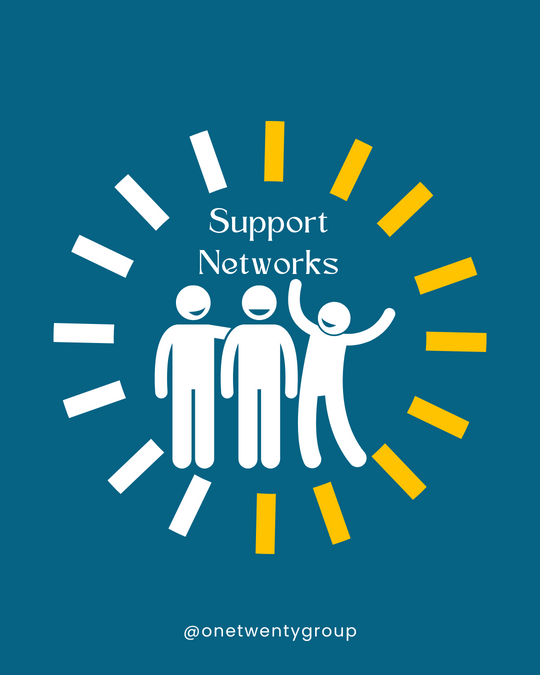
Assisted Decision-Making
Assisted decision-making occurs when an individual; with the assistance of their family and support network, draws from the experiences and knowledge of their life to make a decision. The benefits of assisted decision-making reflect respect for the individuals rights, experiences and personal will and preferences.
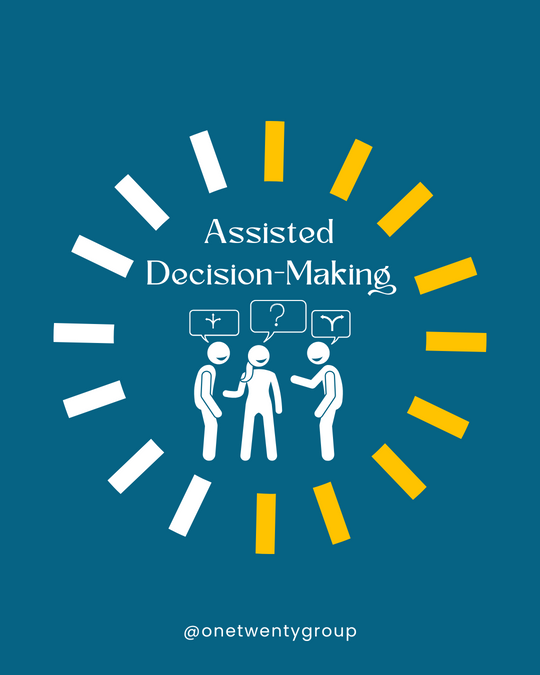
Benefits and Challenges to Building a Support Network
Want to learn more about Support Networks? Click on the picture to access our support network resource page and click on the links below for more information on the benefits and challenges of building a support network.
Click on the picture to access the full resource.
Assisted Decision-Making
Assisted decision-making occurs when a person; with the assistance of their family and/or support network, draws from the experiences and knowledge of their life to make a decision. The benefits of assisted decision-making reflect respect for the person’s rights, experiences and personal will and preferences.
How are Assisted Decision-Making and Substitute Decision-Making Different?
- Assisted decision-making respects each person’s right to make their own decisions. It involves the person in the decision-making process, taking into account their personal will and preferences.
- Substitute decision-making takes away a person’s right to make their own decisions. Another individual is appointed to make decisions for the person. This process should include taking into consideration the person’s personal will and preferences.
Click on the picture to access the full resource.
three levels of decision-making support
Independent Decision-Making
Assisted Decision-Making
- The person is able to make Their own decisions.
- They can choose to pull in friends and family to help in decision-making.
- They can make mistakes and learn from those mistakes.
Right to make own decisions is respected
Support Network is a beneficial decision-making tool
- a support network assists the person in making decisions.
- Assistance is provided in a way that respects privacy and dignity.
- Assistance is offered in the least restrictive and intrusive manner possible.
The benefits of INcluding others in decision-making is often misunderstood and opportunities are missed.
Decision-making is a skill that needs practice. People should be included in the decision-making process.
right to make own decisions is taken away
Substitute Decision-Making
- Another person is appointed to make decisions for the person. They can be a friend, family member, or public guardian and Trustee.
- The person should be included in the decision-making process and their will and preferences should be considered.
The Family Gathering Retreat
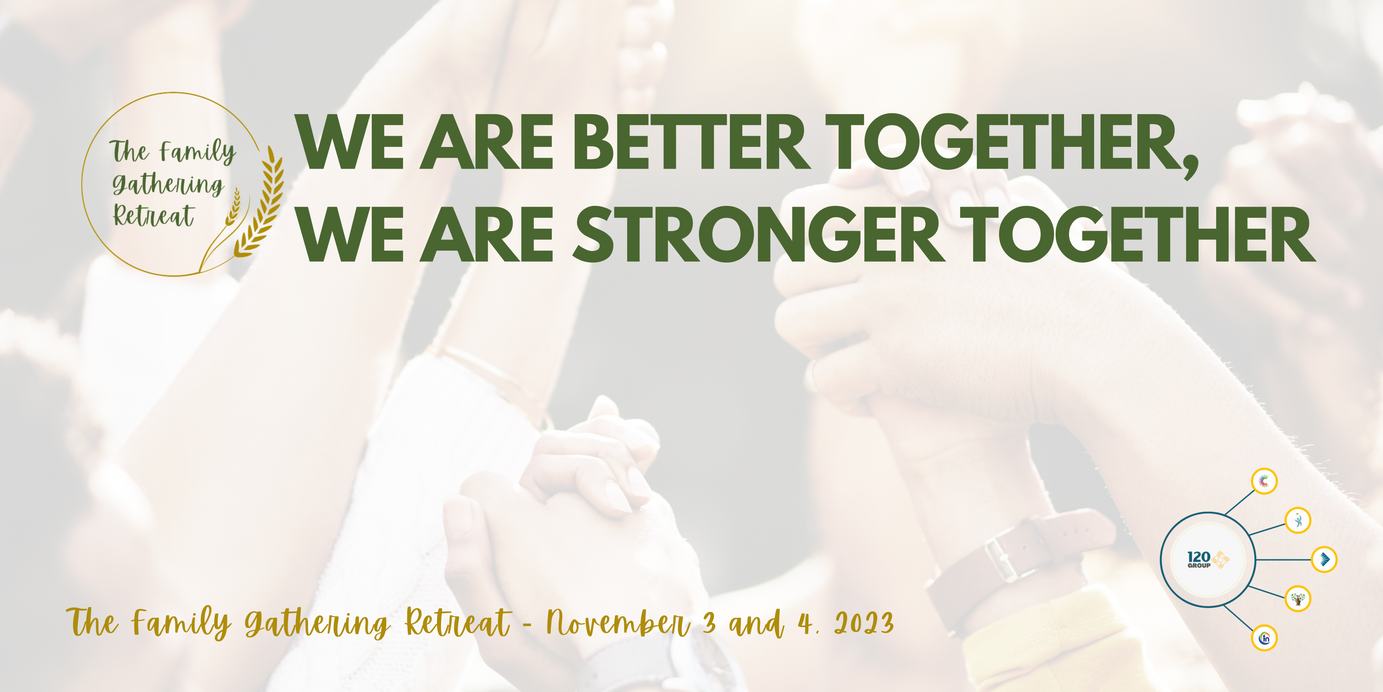
The Family Gathering Retreat was a 2 day event for Families and Caregivers held at Camp Manitou in Headingley, Manitoba on November 3rd and 4th, 2023. The event brought both peer to peer connection and self-care opportunities as well as various learning sessions interwoven throughout the weekend. Content for the weekend included speakers from
the disability sector as well as parents and family members sharing their stories about building and sustaining support networks and how those networks benefit in practicing assisted decision-making. The 120 Maryland Group wanted to bring together a supportive environment that would allow families the opportunity to unwind and relax; opening their minds to new perspectives and building knowledge of new concepts. Breakout sessions offered families the opportunity to learn more about peer support, support networks, and assisted decision-making.
The Family Gathering Retreat hosted over 50 family members and caregivers over the two days and left many feeling re-energized, inspired, and hopeful for the future. The partners of the 120 Maryland Group are excited by the success of the event and are looking forward to working on future planning to bring families together again.
I just wanted to again send out a Ginormous thank you to everyone who put on such an amazing retreat!!! Getting to meet so many of you in person, connecting with others, hearing stories from other families, all the activities, workshops and self care, therapy dogs, yoga etc, was so much needed and greatly appreciated. Hats off to you all!!!
Each of you are truly amazing, and the event was filled with so much positivity. I left feeling re-charged, far less alone, and uplifted. For the 1st time in a long time, I have hope. For my own son and his future and for the many beautiful and unique people living with different abilities.
-Sabrina Gamey (Parent)
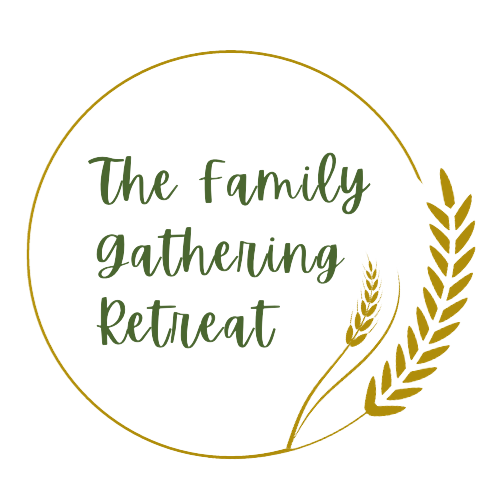
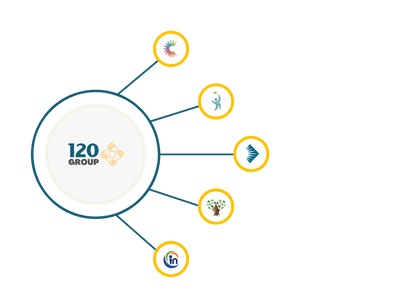
Click on the events calendar above to bring up our upcoming events.
Community Engagements
The Community Based Assisted Decision=Making Pilot Project is travelling to communities throughout Manitoba to hear from families and self-advocates, build peer support networks and cultivate conversations about assisted decision-making and support networks. Keep an eye out on our calendar and on our partner organizations' Facebook pages for information on when we will be visiting a community near you. To request the 120 Maryland Group coming to your community, send us an email at cbadmproject@aclmb.ca.
Have Questions?
For more information on the Community Based Assisted Decision-Making pilot project send us an email at cbadmproject@aclmb.ca and we will be in contact to answer any of your questions.

